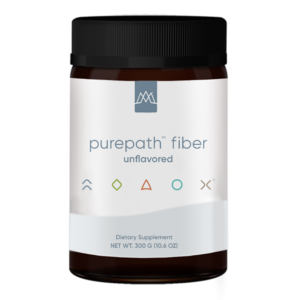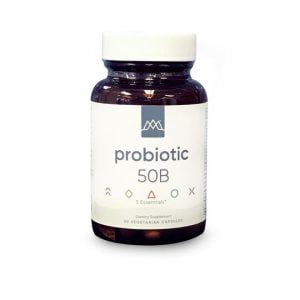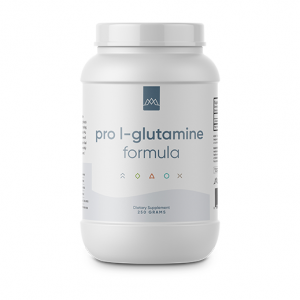Digestive System Disruptions
Disruption in your digestive system disruption can be uncomfortable. You may experience this after a big, heavy meal or get a feeling of being carsick. You get an upset stomach, gas, heartburn, nausea, or maybe a bathroom problem like constipation or diarrhea.
You know these things will pass, even if at the time they feel like an eternity. But when they happen a lot, digestive system disrupt can really disrupt your life.
Your Digestive System Explained
Your digestive system breaks down and absorbs food into parts small enough for your body to absorb. Your body uses those nutrients for energy, growth, and cell repair. The process starts in your mouth when you anticipate eating and your mouth produces saliva.
 Think of your digestive tract as a long, twisting tube that runs from your mouth to your anus. The mouth, esophagus, stomach, small intestine, large intestine, and anus make up these organs. Your liver, pancreas, and gallbladder also play roles in digestive health.
Think of your digestive tract as a long, twisting tube that runs from your mouth to your anus. The mouth, esophagus, stomach, small intestine, large intestine, and anus make up these organs. Your liver, pancreas, and gallbladder also play roles in digestive health.
Like every system within your body, your digestive system should work seamlessly to do these tasks. But when this system malfunctions, problems like constipation, diarrhea, and heartburn can result.
Most common digestive problems resolve themselves in time, but some could be signs of more serious health issues. Always talk with your healthcare practitioner about any specific concerns.
Gut Microbiota
Your gut flora underlies many of these digestive disorders. Within your gut, you have 300 – 500 different kinds of bacteria. All together, these bacteria are called your microbiota. These bacteria line your gut and impact nearly many functions in your body. You healthy gut bacteria support your metabolism, your mood, your immune system, and so much more.
People with inflammatory bowel diseases such as Crohn’s disease and ulcerative colitis can have lower levels of certain anti-inflammatory gut bacteria.
What happens in your gut impacts nearly every organ:
- Chemicals that your gut makes also impact your brain
- The wrong gut bacteria can create an immune response that damages your liver
- That bad gut bacteria can build up plaque that leads to heart disease
Want to lose weight? Start with your gut. Research shows supporting healthy gut bacteria can significantly improve your body mass index (BMI), weight loss, and fat loss. While other factors often contribute too, gut bacteria play a role in many diseases such as type 2 diabetes.
How to Prevent Digestive Disorders
Many things can go wrong as food passes through your digestive system. Gas, bloating, heartburn, diarrhea, and constipation are some of the signs that you’re not digesting food well.
 Your digestive system can slow down as you get older, creating symptoms like constipation. You can’t control getting older, but many factors that contribute to digestive disorders are within your control.
Your digestive system can slow down as you get older, creating symptoms like constipation. You can’t control getting older, but many factors that contribute to digestive disorders are within your control.
- Medications. Some pharmaceutical drugs including calcium channel blockers can create digestive problems like constipation. Talk to your healthcare practitioner about alternatives to and side effects of these medications. Never modify or discontinue any prescription drugs without your healthcare practitioner’s consent.
- Dehydration. You might fear that drinking too much water will make you run to the bathroom often. But being dehydrated can contribute to constipation and more.
- Gut disorders. Common problems like heartburn can impact digestion. Age increases your risk of heartburn, but so does eating late at night and eating greasy, sugary foods. Certain medications and obesity can also increase heartburn.
- Processed foods. These often contain food additives, sugar, salt, and other chemicals that can increase gut inflammation and lead to problems like leaky gut.
- Bad habits. Smoking, excessive alcohol, and late-night fridge raids can all contribute to digestive disorders.
Work with your healthcare practitioner if you experience these or other problems that impair digestion and create unpleasant side effects.
Eat Better to Improve Your Digestion
Maintaining a healthy digestive system helps your body break down food for energy and nutrients. And everything benefits when your body gets all the nutrients it requires from food.
A high-sugar, low-fiber diet can destroy healthy gut bacteria and create a less diverse mix of that good bacteria. Up to 13 percent of us could have non-celiac gluten sensitivities. For those people, gluten can create problems like bloating, gas, diarrhea, and other digestive issues.
The right diet, on the other hand, is your best strategy to support digestion. A wide variety of leafy and cruciferous greens, low-sugar fruits like berries and avocado, nuts, and seeds provides nutrients and fiber. Dietary fiber is among your allies for digestive health.
- The soluble fiber in nuts and seeds absorbs water. That provides your stool bulk so you have regular bowel movements.
- The insoluble fiber in vegetables keeps things moving along in your digestive tract.
- The prebiotics in many fruits and vegetables feeds your healthy gut bacteria. They can reduce inflammatory bowel conditions.
Healthy fats also support digestion. You need these good fats to absorb fat-soluble vitamins like vitamin D. The omega-3 fatty acids in fatty fish, flax seeds, and walnuts can also lower inflammation and reduce your risk of inflammatory bowel diseases like ulcerative colitis.
What you eat matters, but so does what you drink. Clean, filtered water can prevent constipation and keep your digestive system working well.
To further support your digestive system, consider intermittent fasting a few days weekly.
Eating all day takes its toll on your overworked digestive system. Fasting can give digestion a break while offering other benefits, including weight loss. Close up your kitchen after dinner and push breakfast later the next morning. You’ll create a 14-hour or so fasting window.
Digestion Supplements to Keep Your Track on Track
Along with a healthy diet, a few nutrients can support your digestive system to keep it functioning well and preventing common problems. These nutrients are ideal for supporting digestive health.
Dietary Fiber
Dietary fiber can help normalize bowel movements to prevent constipation, lower blood sugar levels, and much more. Try MaxLiving PurePathTM Fiber. It comes unflavored so you can add it to any shake or simply just a glass of water.
Most of us eat half or even less than half of the recommended intake for dietary fiber. Even if you’re eating plenty of fiber-rich foods, a fiber supplement can help provide additional fiber and help you meet your requirements.
You’ll find fiber in capsules or powder. Look for a supplement that contains a variety of soluble and insoluble fibers to mimic what you would get in food.
Start slowly and gradually increase intake to the recommended dose. Too much, too quickly can create problems like bloating and gas.
Fiber supplements can decrease the absorption of certain medications. They can also lower blood sugar, which means your healthcare practitioner might need to adjust certain medications. Talk with your healthcare practitioner if you decide to talk a fiber supplement to gain their consent.
L-Glutamine
L-Glutamine is an amino acid that can protect the mucous membrane within your esophagus and intestines making it ideal for people with digestive problems like IBS.
L-glutamine can also support immune cells in your gut, prevent infection and inflammation, soothe your gut, and support energy production.
L-glutamine also supports your gut wall to prevent leaky gut. Stress, illness, and chronic inflammatory diseases can all lower L-glutamine levels, making a powder supplement ideal.
You’ll find L-glutamine in capsules or powders. To get the right amounts, powder is more efficient and mixes well with smoothies or in liquids.
Probiotics
Fermented foods like sauerkraut can improve your digestive system. These foods can support healthy gut flora to improve bloating, gas, and pain for people with IBS. They might also improve constipation and diarrhea.
 Most of us don’t eat these regularly, making a probiotic supplement ideal. Among their benefits, probiotics can:
Most of us don’t eat these regularly, making a probiotic supplement ideal. Among their benefits, probiotics can:
- Lower the pH level in your colon, helping you eliminate waste better.
- Relieve antibiotic-related diarrhea.
- Help your gut better absorb protein, vitamins, and other nutrients.
MaxLiving Probiotic 50B supports the colonization of healthy gut bacteria and can boost your immune system.
Certain probiotics are also targeted to address specific digestive issues such as constipation. Talk with your healthcare practitioner about the correct probiotic supplement for your condition.
Digestive Enzymes
To break down food, your body produces digestive enzymes. Specific digestive enzymes help break down carbohydrates, fats, and proteins into smaller molecules that your body can absorb.
Certain things, like your age, can impede these enzymes. About 40 percent of older adults have digestive problems.
That can impede digestive enzymes from completely breaking down food, creating digestive disorders like lactose intolerance.
A quality digestive enzyme supplement provides a combination of digestive enzymes in the right ratio to help your body effectively break down food into nutrients.
Natural Ways to Improve Your Digestive Health
What you eat and the nutrients you take can go a long way to keeping your digestive system strong and healthy. Along with those healthy habits, a few specific dietary and lifestyle tweaks can prevent the gas, bloating, and other digestive problems to keep your digestive system working well.
Exercise
Moderate exercise — even a 30-minute walk — can improve food transit time in your gut and prevent constipation. Exercise can also lower inflammation, improve inflammatory bowel diseases, and support a healthier balance of bacteria in your gut.
Reduce Stress
What impacts your brain also affects digestion. Feeling stressed out, for instance, can impact your digestive system. When stress hormones shift your body into fight-or-flight mode, your digestive system might not absorb nutrients well. Stressful thoughts can impact how well your gut makes digestive enzymes and more.
Mindful Eating
What you eat matters, but so too does how you eat. Mindless eating — on the go, running from one thing to another, or eating while you’re focused on other things — can create bloating, gas, and indigestion.
Try to be completely present during meals. Focus on food, not your laptop or phone. Chew your food slowly and savor every bite.
Digestive problems can be frustrating. Whether you struggle with occasional problems like gas and bloating, or these things happen more frequently, you have a number of strategies to minimize their impact and keep your digestive system working well. A nutrient-rich diet along with the right supplements and healthy habits can help your digestive system work well at any age.



